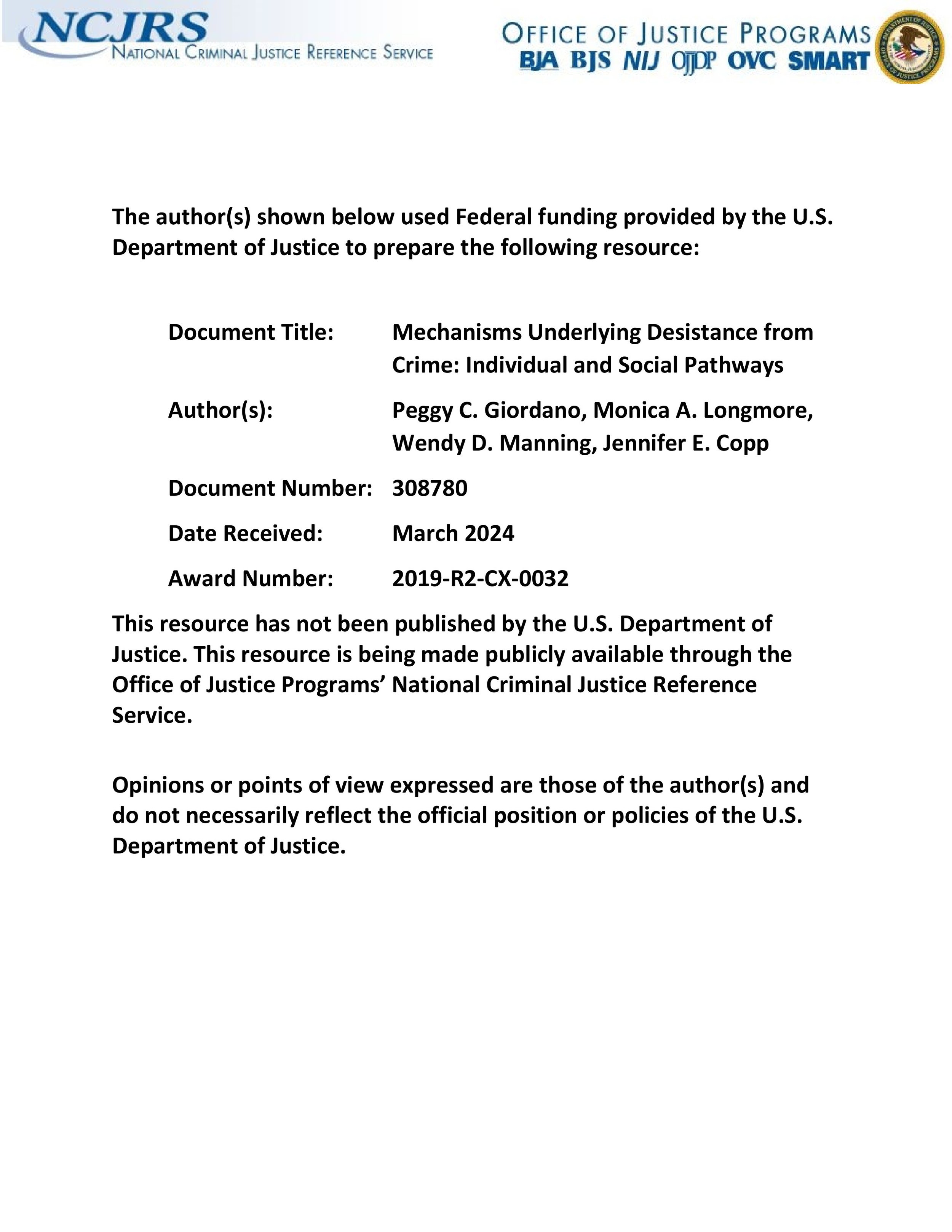By Peggy C. Giordano; Monica A. Longmore; Wendy D. Manning; Jennifer E. Copp
The research described in this report sought to address social and individual-level mechanisms that drive successful and sustained criminal desistance through a mixed-method project that included analyses based on the existing six waves of the Toledo Adolescent Relationships Study (TARS) over an 18-year time span. The researchers’ goal was to more fully inform criminal justice policy priorities and help design more effective criminal recidivism intervention efforts. The researchers proposed conducting desistance narratives with a subset of male and female respondents who had evidenced a pattern of sustained criminal desistance, and contrasting those respondents with individuals who have persisted in criminal activity as well as others with patterns of intermittent criminal activity. The report details the researchers’ methodology, and notes that their goal was to incorporate insights from the narratives as well as contemporary theorizing to systematically distinguish individuals who persisted, desisted, and were intermittently involved in criminal activity. The three guiding research aims were: to identify individual-level factors linked to sustained desistance; to examine social network influences on desistance processes; and to determine gender similarities and differences in desistance processes. The report provides a discussion of outcomes and findings, and a listing of artifacts that resulted from the project.
Bowling Green, OH: Bowling Green State University, 2023. 27p.


